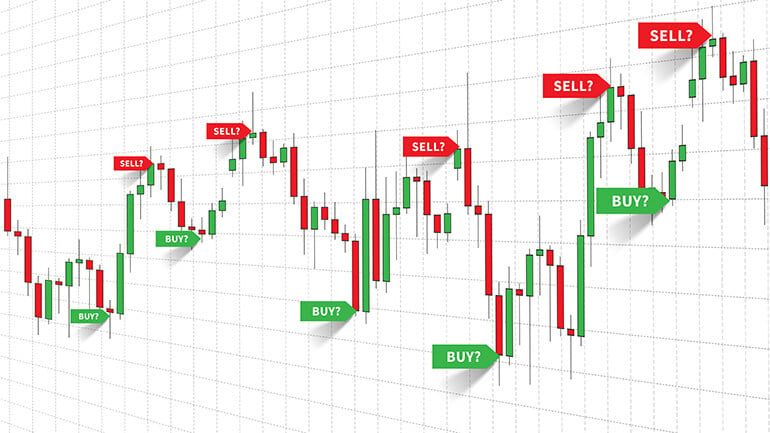In the world of foreign exchange (forex) trading, the quest for the best tools and strategies is never-ending. One resource that has gained significant attention in recent years is forex signals. These are real-time trading suggestions that aim to guide traders in making informed decisions.
But do forex signals work? Are they truly the key to success in forex trading? This article aims to unravel the mystery surrounding forex signals and provide a comprehensive understanding of their effectiveness.
Understanding forex
Forex, short for foreign exchange, is the global marketplace for the exchange of national currencies. The forex market is a complex ecosystem involving a diverse range of participants, including central banks, governments, commercial banks, financial institutions, corporations, and individual traders. These entities interact to facilitate international trade, investments, and lending, as well as manage currency risks and monetary policies.
In forex trading, currencies are exchanged in pairs, and each pair represents the value of one currency relative to another, such as EUR/USD or USD/JPY. Exchange rates fluctuate constantly due to various factors, including economic data releases, geopolitical events, and market sentiment.
Related article: Best forex trading books
Consequently, traders aim to capitalize on these fluctuations with custom trading strategies. In this dynamic marketplace, understanding the forces that drive currency values and mastering various trading strategies are crucial for success. With a daily trading volume of around $6 trillion, forex is the largest and most liquid financial market in the world.
The appeal of forex signals
Forex signals have become a popular tool for traders looking to capitalize on the opportunities that arise in the forex market. But what are forex signals? By providing trade recommendations based on technical or fundamental analysis, these signals aim to simplify the decision-making process for traders, especially those who are new to the market or lack the time to carry out their own research.

Forex signals examples, source: ifcmarkets.com
Live forex signals, which are delivered in real-time, are particularly attractive because they enable traders to act quickly on market opportunities. It doesn’t matter whether the trading style is swing trading or day trading. There are tons of forex trading signal providers, but how do they work, and are they reliable?
How forex trading signals are generated
To comprehend the efficacy of forex signals, it is essential to understand how they are generated. Forex trading signals can be produced using two primary methods: manual and automated. Manual signals are created by experienced traders who analyze market data and trends, creating live forex signals.
Also read: What is the difference between trading and investing?
On the other hand, automated signals rely on sophisticated algorithms (also called EA) that process vast amounts of data to identify trading opportunities. Each method has its pros and cons, and ultimately, the best forex signals will depend on an individual trader’s preferences and risk tolerance.
The reliability of forex signals
The effectiveness of forex signals hinges on their reliability. Factors such as the signal provider’s track record, transparency, and the quality of their analysis play a crucial role in determining the signal’s dependability. Every investor should do due diligence about a specific forex signal provider before trying forex signals.
When considering a forex signal provider, traders should be cautious of those who make unrealistic claims or lack a proven history of successful trades. It is always wise to verify the credibility of a signal provider through independent reviews and testimonials. Investors need to remember that even a track record and reviews may be manipulated, so due diligence is essential.
The role of risk management
Even the best forex signals cannot guarantee success in the forex market. Market conditions can change rapidly, and signals may become obsolete or irrelevant within moments. Therefore, risk management is a critical component of any trading strategy that incorporates forex signals.
By employing stop-loss orders, take-profit levels, and appropriate position sizing, traders can mitigate the risks associated with following forex signals and protect their investments. There are many fraudulent forex signal providers who might use the martingale strategy, which only closes profits and keeps losses open.
Read more: How to control emotions in trading and protect your capital
This always leads to a margin call where the investor who decided to follow these signals loses their money. Usually, more than 1% risk per trade should not be applied to allow stress-free trading along with low drawdown on their trading account.
6 aspects of forex signals to consider
- Forex signals are not foolproof predictors: No forex signal provider can accurately predict the future, as they rely on past data to analyze market trends. While signals may offer insights for trading decisions, they cannot guarantee profits, and there is always the risk of market movement contrary to predictions.
- Forex signals are not a shortcut to wealth: Success with forex signals requires a solid trading strategy and risk management plan. Profits will not materialize overnight, and even the best providers experience losses. Forex signals also come at a cost depending on the provider.
- Risks associated with forex signals: Forex signals carry risks, such as following a bad signal and losing money. It is crucial to choose reputable providers and test signals with a demo account before committing real funds.
- The importance of quick action: Profiting from forex signals requires a strong market understanding and the ability to make swift decisions. This could be the case of manual day trading signals. However, this doesn’t apply to automated copy trading.
- The need for a robust trading strategy: Success with forex signals demands a solid trading strategy, including knowing when to buy or sell and managing risks. Test the providers’ recommendations to ensure compatibility with personal trading styles along with risk tolerance.
- Patience is essential: Acting on forex signals immediately may not always be the best approach. Often, waiting for market confirmation of the signal is more prudent (this is also the case with manual signals). Always use stop-loss orders when trading based on forex signals to limit losses in case of adverse market movements.
Bottom line
Forex trading signals can be a valuable tool for traders, particularly those who lack the expertise or time to conduct their own market analysis. However, the effectiveness of these signals is largely dependent on their reliability and the proper application of risk management strategies.
While forex signals can provide helpful guidance, it is important for traders to perform their own research. Moreover, it is crucial to understand the limitations of signals and maintain realistic expectations in the pursuit of success in the forex market. It’s no get-rich scheme.











Comments
Post has no comment yet.